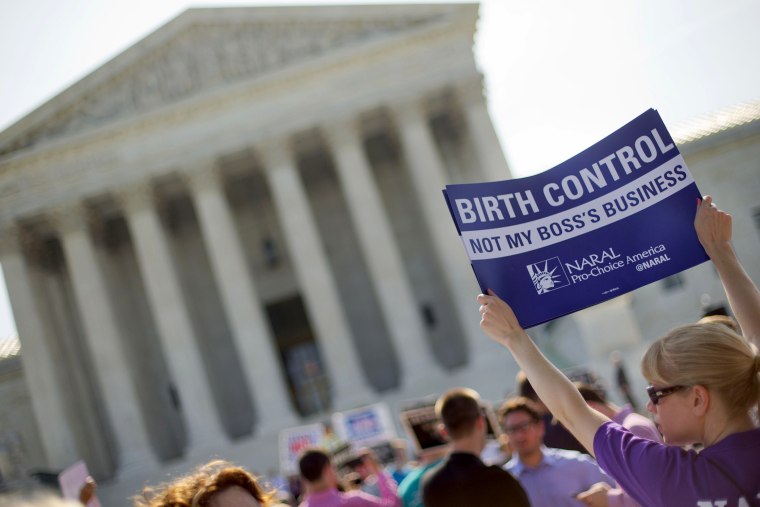Rep. Cory Gardner (R-Colo.) has put himself in a very awkward spot. After flip-flopping on Colorado's proposal on personhood, which would ban abortions and many common forms of birth control, the conservative Republican
continues to support federal personhood legislation.
Asked to explain himself, Gardner has been
reduced to arguing, over and over again, "There is no federal personhood bill." This plainly isn't true -- the congressman is a co-sponsor of the "Life Begins at Conception Act," which his fellow co-sponsors agree is a personhood bill.
It's a problem that Gardner supports a radical proposal that would ban popular forms of contraception. It's arguably a bigger problem that Gardner has been caught trying to deceive the public.
But making matters slightly worse, social conservatives have decided Gardner's new position -- make birth control available over the counter, without a prescription -- isn't good enough, either. Sophie Novack
reported the other day:
Some [in] the Religious Right see the plan as backtracking on conservative ideals, and they worry the ambiguity of the proposal would make pills too easy to access. Eliminating the doctor as a middleman and making birth control easy to obtain could result in its misuse, the critics say. Over-the-counter access to pills that could cause abortions -- intentionally or accidentally -- would be their worst nightmare. "There are several serious health complications with birth control pills," said Jennifer Mason, communications director for Personhood USA. "Some pills could cause abortions; even aside from the moral implications, it's reckless to make abortion and contraception pills available over the counter."
Remember, for Gardner and others in the GOP, this was
supposed to be the silver-bullet solution. The idea is, they can overcome all of their proposed restrictions on contraception access by simply pushing for over-the-counter sales. Voila, political crisis resolved.
What these Republicans may not have realized is that they're inviting scorn from the right by pretending to move to the left.
Meanwhile, a month after the White House again
tried to tweak its contraception policy to accommodate recent court rulings, the right continues to fight efforts at compromise in the courts. Sahil Kapur
reported last week on Ave Maria University's ongoing litigation.
Houses of worship are exempt entirely from the mandate -- their employees have no way to secure coverage for birth control in their employer health plans. That is the treatment that religious nonprofits are seeking as the Obama administration seeks to balance religious liberty and women's health concerns in the wake of its defeat at the Supreme Court in the Hobby Lobby ruling. What remains to be seen is whether the courts will agree that the expanded nonprofit accommodation also infringes on religious liberty. [...] Ian Milhiser, a constitutional law writer with the Center For American Progress, a progressive research and advocacy group, argued: "If the justices honor Ave Maria's idiosyncratic objection, then it is unclear that the administration could design any accommodation that will survive contact with the Supreme Court."
Watch this space.
